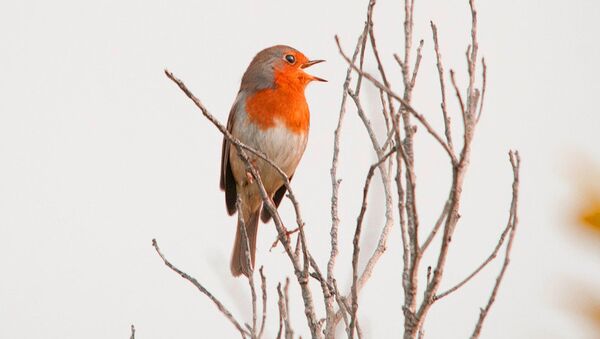The number of trapped songbirds illegally killed on the Dhekelia Sovereign Base Area, close to the tourist hotspot of Ayia Napa, last autumn reached an estimated 900,000 birds.
BirdLife Cyprus and the RSPB have been monitoring illegal songbird trapping activity on the British military base at Dhekelia since 2002. The figures for last autumn reveal that 2014 was the worst year on record, by far, with an estimated 900,000 birds being killed.
This is equivalent to almost 15,000 songbirds a day during the September-October period. The latest figures are now three times higher than when the monitoring started in 2002.
Support our @flywaychampions team & @birdlifecyprus to prevent the illegal killing of birds: https://t.co/XDygfXRt9B pic.twitter.com/iKyWCiuTqk
— Next Gen Birders (@NGBirders) January 15, 2015
Small-scale trapping of songbirds for human consumption on Cyprus was practiced for many centuries, but it has been illegal on the island for 40 years, when it was outlawed in 1974. Unfortunately, organised crime now seems to be driving this illegal activity which is thought to be worth millions of euros every autumn from the songbirds the trappers kill on British Ministry of Defence (MoD) land and then sell to consume illegally in the Republic.
Estimated 900,000 birds illegally killed on British military base in Cyprus last autumn http://t.co/drezwmM7un #RSPB pic.twitter.com/6OwgvGEXqn
— RSPB News (@RSPBNews) March 9, 2015
Comparative figures for the Republic of Cyprus reveal that illegal bird trapping is still a considerable issue, but the figures have reduced since 2002. This is probably because of the more extensive areas of illegally-planted avenues of acacia scrub which have been allowed to be grown by criminals on MoD land. This illegal bird-killing infrastructure is used by the trappers as cover to attract the birds and to set their nets.
Songbirds on UK base in Cyprus are caught w/nets or glue sticks; killed birds are served as an upscale delicacy. pic.twitter.com/58adaq84KN
— Meliannos (@meliannos) May 18, 2014
Dr Tim Stowe, the RSPB's International Director, said:
"The report highlights the illegal trapping of songbirds on the British military base has escalated and we are urging the Ministry of Defence and the Base Area authorities to resolve it before this autumn's migration. Such extensive illegal activity requires all the Cyprus authorities to work together to combat it, and the Base Areas' contribution should be zero-tolerance towards illegal bird trapping."
"We were pleased that the Base Area authorities have started to remove acacia scrub last December. We believe the scale of illegal trapping requires continuing and sustained action, and we'll continue to offer our support," said Dr Tim Stowe.
BirdLife Cyprus and the RSPB believe that the Sovereign Base Area authorities should now develop a plan to remove all the illegally-planted and non-native avenues of acacia on MoD land as rapidly as possible.


